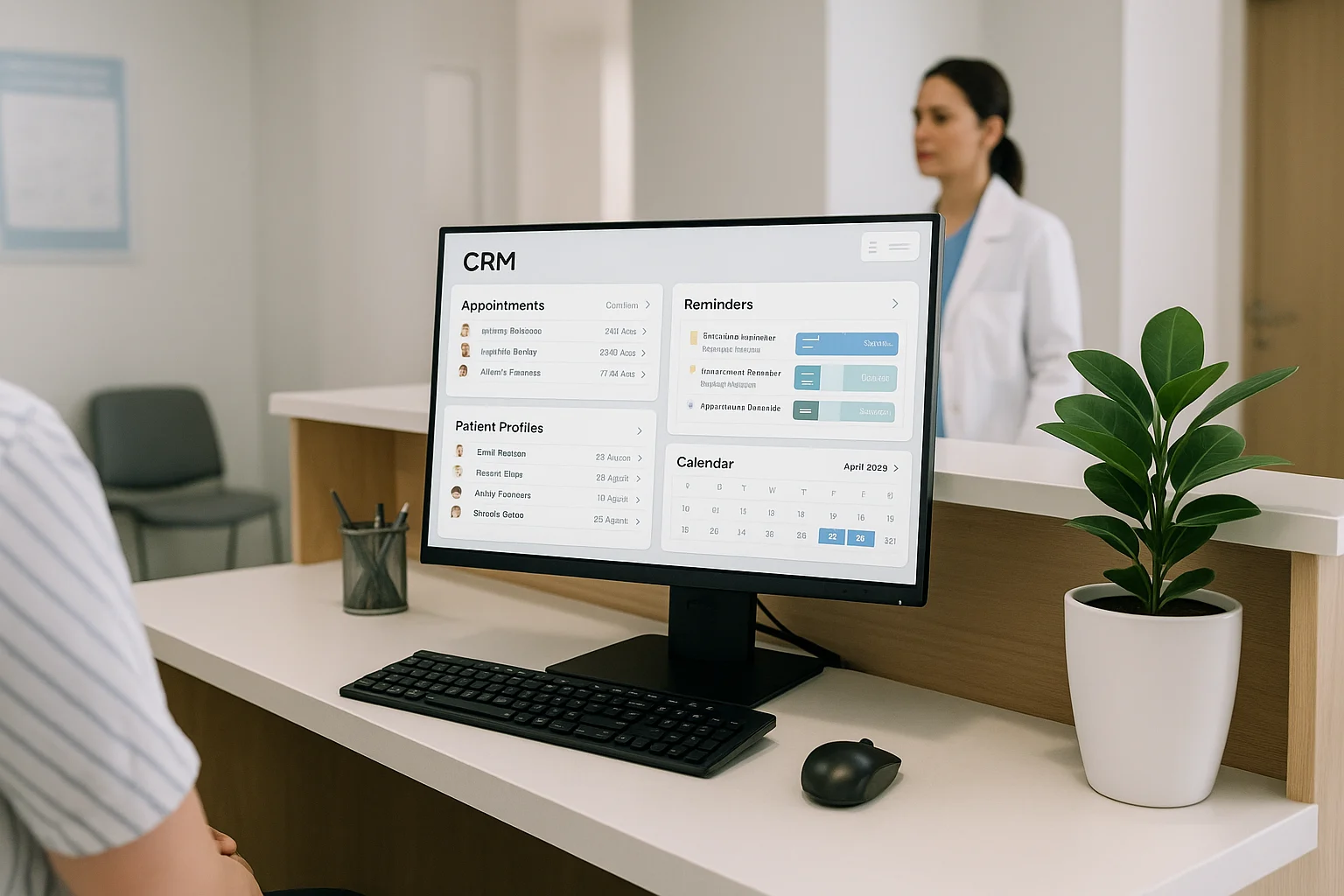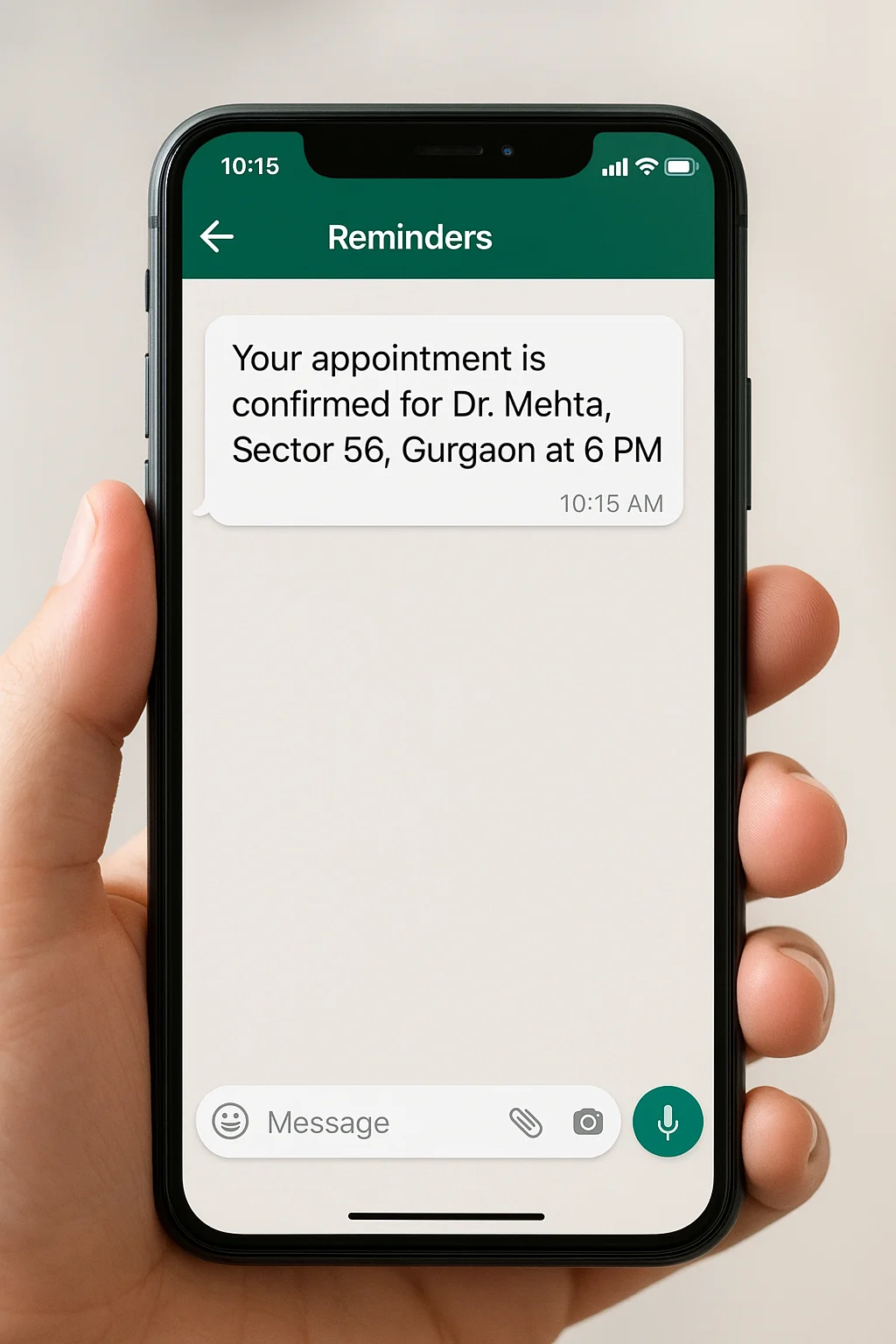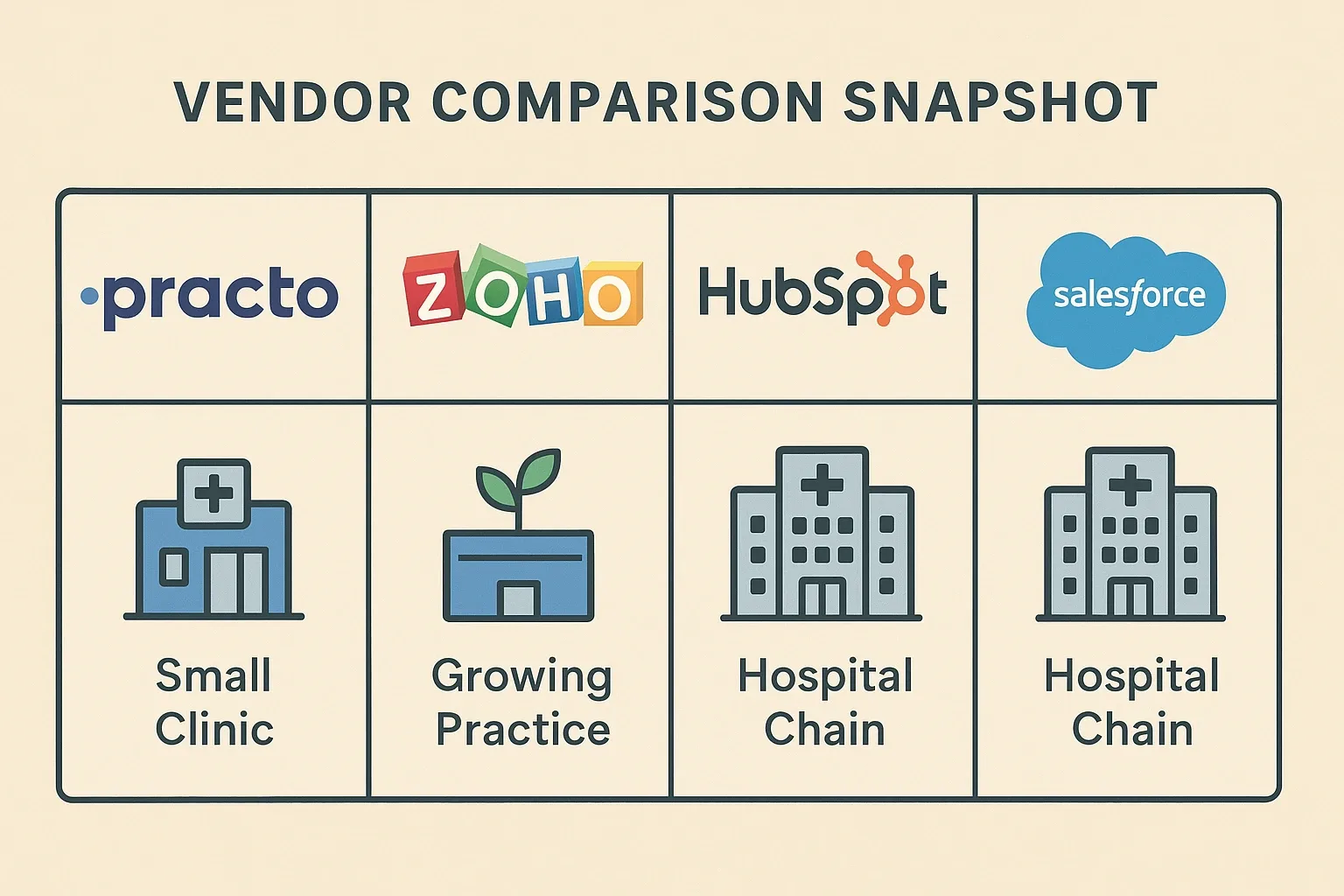Patient experience and operational efficiency are the two reasons every modern clinic in Gurgaon (DLF Cyber City, Golf Course Road, Sohna Road, Sector 56–67, etc.) should adopt a CRM (customer/patient relationship management) system. A well-configured CRM centralizes appointments, follow-ups, patient history, automated reminders (SMS/WhatsApp/email), and reporting — freeing staff to focus on care while improving retention and referrals. Industry guides and healthcare CRM vendors highlight measurable benefits such as reduced no-shows, faster intake, and higher conversion from lead → appointment. Salesforce
Below is a Gurgaon-specific, step-by-step playbook — including vendor shortlists, compliance checks (DPDP + Telemedicine Guidelines), and working links so you can evaluate and move fast.

If you run a clinic in Gurgaon, a CRM delivers immediate operational wins:
- Fewer no-shows & better bookings — automated reminders and two-way messaging reduce missed appointments. innovaccer.com
- Better patient journeys — one central record (appointments, calls, emails, treatments) means personalized follow-ups and higher satisfaction.
- Local marketing & conversion — capture leads from Google Business Profile or Facebook ads and move them to booking with CRM automation. Google Help
Before choosing features, note how Gurgaon patients commonly interact with clinics:
- WhatsApp is dominant for quick communication — use it for confirmations and quick triage. India is the world's largest WhatsApp market, so WhatsApp reminders reach more local patients than many other channels. Backlinko
- Google Business Profile (GBP) is how many local patients discover clinics; capture those leads directly into your CRM using a registration form/landing page. Google Help

This means your CRM should support: WhatsApp/SMS integration, web form → lead capture, and easy GBP->landing page workflows.
When evaluating CRMs, insist on these capabilities:
- Appointment scheduler + calendar sync (doctors & rooms). (Core feature for daily clinics.)
- Automated reminders (SMS/WhatsApp/email) and two-way messaging. (Cuts no-shows.)
- Basic EHR/EMR or EHR integration. If your clinic already uses an EHR, pick a CRM that integrates (or choose a unified Practice Management + CRM like Practo Ray).
- Consent & audit trail features (consent checkboxes, timestamped logs). Required under India's DPDP & Telemedicine guidance—store consent metadata.
- Role-based access & encryption (who can view patient PHI). Ensure vendor offers secure access controls and data encryption.
- Reporting dashboard (no. of bookings, no-show rate, lead→appointment conversion).
Below are practical options, with why-/when to choose each. (I list Indian-friendly and global options — all have India footprints or local partners.)
- Ray by Practo (Practo Ray) — purpose-built practice & patient management for Indian clinics: appointment booking, EHR, SMS, billing and patient profiles. Good fit for single clinics and small multi-doctor practices in India. Practo
- Zoho (Healthcare solutions / Creator + CRM) — highly configurable; strong on integrations, omnichannel messaging, local pricing and custom workflows. Good if you want a custom, low-cost CRM that can connect to local payment gateways. Zoho
- HubSpot (HubSpot for Healthcare) — strong UX, marketing automation, reporting; offers healthcare-focused features and HIPAA/PHI governance tools (ask about any India-specific data residency needs). Great for clinics that want marketing + CRM together. HubSpot
- Salesforce Health Cloud — enterprise-grade: care-coordination, deep integrations, AI/analytics. Best for larger multi-specialty clinics or hospital chains. Salesforce

How to choose: small single-doc clinics → Practo/Zoho; growing clinics (marketing focus) → HubSpot; hospital chains → Salesforce. Use free trials/demos and ask for an Indian reference clinic.
Key laws/guidelines
- DPDP Act, 2023 — governs digital personal data handling (consent, notice, retention, rights). Your CRM workflows must capture explicit consent, provide withdrawal options and maintain notice records.
- Telemedicine Practice Guidelines (MoHFW/NMC, 2020) — require RMPs to protect patient privacy in teleconsultations and keep records of remote interactions. If you use teleconsultation within your CRM (call logs, chat transcripts), treat it as medical record.
Practical clinic checklist (do this before migrating patient data)
- Add a consent capture to all web forms and walk-in intake forms (time/date stamp + purpose for which data is used).
- Sign a Data Processing Agreement (DPA) with your CRM vendor that specifies processing, retention, and breach notification rules. MeitY
- Use role-based access (admin, front-desk, clinician) and enforce strong passwords & 2FA.
- Keep audit logs for any PHI access and periodic review. (Required good practice under DPDP and telemedicine guidance.)
Note: DPDP is new — ask your lawyer or a data-privacy specialist to review vendor DPAs and local storage choices before you put patient PHI into a cloud CRM.
Week 0 — Plan & shortlist
- Map workflows (intake → consultation → follow-up → billing). Decide owner for each step (who does what).
- Select vendor; request a demo with Indian clinic use-cases.
Week 1–2 — Prepare data & forms
- Export existing appointment & patient lists (CSV). Clean duplicates.
- Build intake forms (with consent checkbox and privacy notice). Link forms to CRM lead pipeline.
Week 3 — Small-scale pilot
- Migrate 2–4 weeks of real patient records (test set). Configure calendar sync and reminder templates (WhatsApp/SMS/email). Measure no-show impact.
Week 4–5 — Staff training
- Train front-desk (booking, payments), clinicians (viewing history), and admin (reports). Use role-based access & audit logs.
Week 6–8 — Go live & measure
- Full migration. Run automated reminders and a post-visit NPS/feedback workflow. Monitor KPIs: no-show rate, booking conversion, patient satisfaction, average time to book. Adjust templates and automations.
- WhatsApp / SMS gateway (2-way messaging) — for confirmations and rapid triage (WhatsApp is widely used by Gurgaon patients). Backlinko
- Payment gateway — capture online pre-payments or pay-at-clinic flows and link invoices to patient records.
- EHR / EMR — either built-in (Practo Ray) or integrated (Zoho/Hipaa-compliant connectors) so clinical notes and CRM records stay in sync.
- Google Business Profile → Landing page integration — capture GBP leads directly to CRM forms for immediate follow-up. Google Help
- Booking conversion rate (lead → scheduled appointment)
- No-show rate (aim to reduce by 30% with reminders)
- Average time to first appointment after enquiry
- Follow-up completion rate (post-treatment follow-ups completed)
- Patient satisfaction / NPS
Use the CRM dashboard + monthly review meetings to iterate.
- GBP posts & events — post case studies or preventive-care campaigns; use a GBP event to drive signups to CRM landing pages. (Google shows event posts in local search.) Google Help
- Local WhatsApp broadcast & community groups — use opt-in lists only; capture opt-ins via CRM forms to comply with DPDP. WhatsApp is extremely popular in India — a direct channel for reminders and short health tips.
- Targeted Ads (Geo-target Gurgaon sectors) routed to CRM landing pages for immediate booking.
- Ask for an India-specific quote (local currency, GST included, and any on-boarding fees). Practo and Zoho provide India plans; HubSpot and Salesforce can be configured with partner discounts for clinics.
- Negotiate DPA & uptime SLAs, ask where data will be stored (region) and how backups are handled.
- Start with a pilot (1 location / 2 doctors) before full roll-out to avoid high upfront cost.
Quick GDPR/DPDP-aware consent sample (for forms) — short checklist (not legal text)
- Patient name (required)
- Phone / email (required)
- Purpose: "I consent to my data being used to send appointment reminders, telemedicine follow-ups and clinic communications." (checkbox + date/time)
- Withdrawal instructions: "You can withdraw consent by replying STOP or emailing [clinic-email]."
Yes — when selected and implemented correctly. For clinics in Gurgaon the immediate wins are: fewer no-shows, faster intake, better follow-ups and measurable lift from local discovery channels (GBP + WhatsApp). Start small (pilot), enforce DPDP/telemedicine compliance, and scale with integrations (EHR, payments, messaging).
Need help? Qaushik Labs builds Gurgaon-focused CRM implementations for clinics — from vendor shortlisting and DPA checks to landing pages, GBP event wiring and WhatsApp automation. We handle the tech so you can care for patients.
A CRM helps clinics in Gurgaon reduce no-shows, automate reminders (WhatsApp/SMS), and improve patient follow-ups — leading to higher retention and smoother operations.
Popular options include Practo Ray (for Indian clinics), Zoho CRM, HubSpot, and Salesforce Health Cloud. The right choice depends on clinic size and workflow needs.
CRM tools with consent capture, role-based access, and audit trails ensure patient data is stored securely and meet India's DPDP Act 2023 and Telemedicine Guidelines.
Yes. Most healthcare CRMs allow WhatsApp/SMS integration, making it easy to send appointment confirmations and reminders, which is the most preferred channel in Gurgaon.
Costs vary by vendor. Practo and Zoho offer India-specific affordable plans, while HubSpot and Salesforce are higher-end solutions. Clinics should request a local GST-inclusive quote.